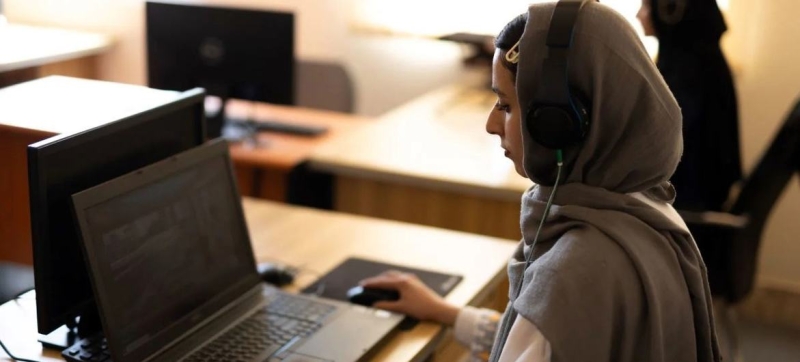
Afghanistan will inevitably face a shortage of graduates trained for the most highly skilled professions. Afghanistan: 1.4 million girls still unable to attend school Culture and Education
Three years after the Taliban came to power, Afghanistan remains the only country in the world where secondary and higher education is strictly prohibited for girls and women. UNESCO figures released Thursday showed that 1.4 million Afghan girls have been deliberately prevented from receiving a school education.
Access to primary education has also declined sharply over this period, with 1.1 million fewer Afghan children now attending primary school compared to three years ago.
“Today, Afghanistan is the only country in the world where access to education for women and girls over the age of 12 is denied. This situation should concern us all,” said UNESCO Director-General Audrey Azoulay. “The right to education cannot be negotiated or compromised.”
The Deterioration of the Education Situation
Three years after the fall of Kabul, UNESCO has published data that shows a serious degradation of the education situation in Afghanistan. As a result of bans imposed by the de facto authorities, at least 1.4 million girls have been deliberately denied access to secondary education since 2021. This is 300,000 more than in April 2023, when UNESCO conducted its last count.
In just three years, the Taliban have virtually wiped out two decades of steady progress in education in Afghanistan, and the future of an entire generation is now at risk.
Teacher Shortage
Although girls are still allowed to study up to the age of 12, the number of primary school students has fallen sharply since 2021. According to new UNESCO data, there were 5.7 million girls and boys in primary school in Afghanistan in 2022, down from 6.8 million in 2019. The drop in primary school enrollment was the result of the de facto authorities’ decision to ban female teachers from teaching boys, exacerbating the teacher shortage.
The figures in higher education are also very alarming: the number of students enrolled in universities has fallen by more than half (53 percent) since 2021. As a result, Afghanistan will soon face a shortage of graduates prepared for the most highly skilled professions, which will further hinder the country’s development.
Alternative teaching methods
Since 2021, UNESCO has been working with its humanitarian partners to develop alternative teaching methods in Afghanistan. The organization has developed community-based programmes in 20 provinces of the country. More than a thousand educators, including 780 women, have been trained to deliver literacy courses. More than 55,000 young people, most of them girls, have already benefited from these courses.
UNESCO is also active in neighboring countries such as Pakistan, Tajikistan and Iran, providing training support to Afghan refugees and displaced persons.
